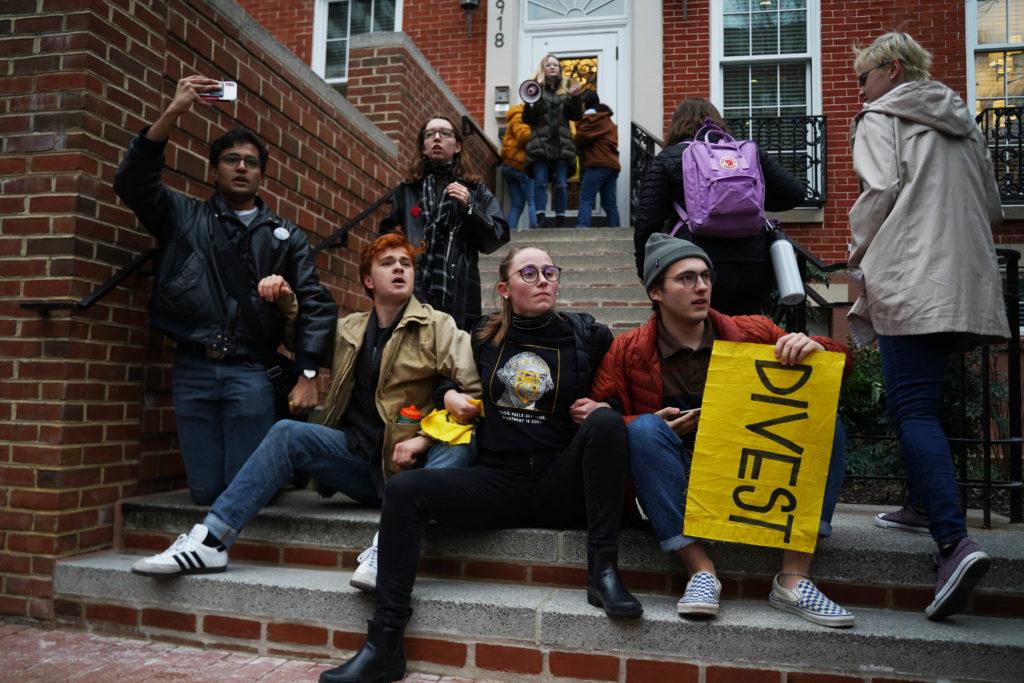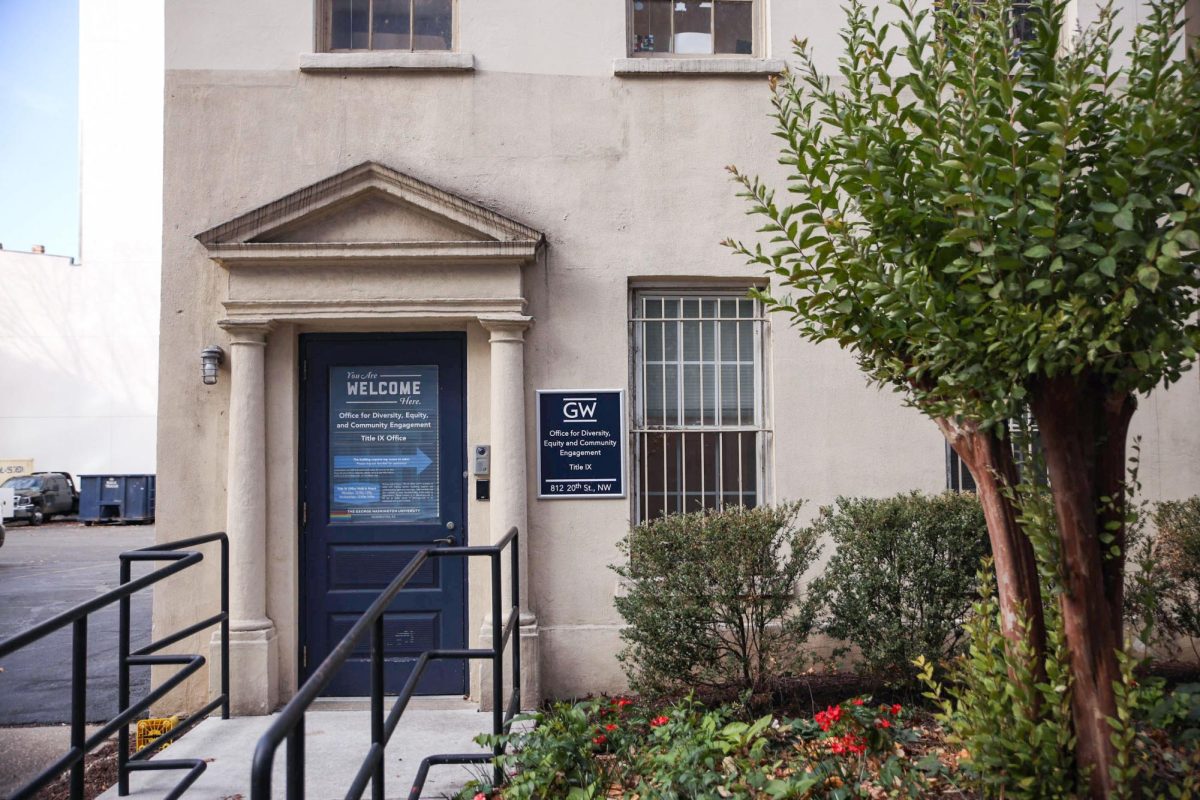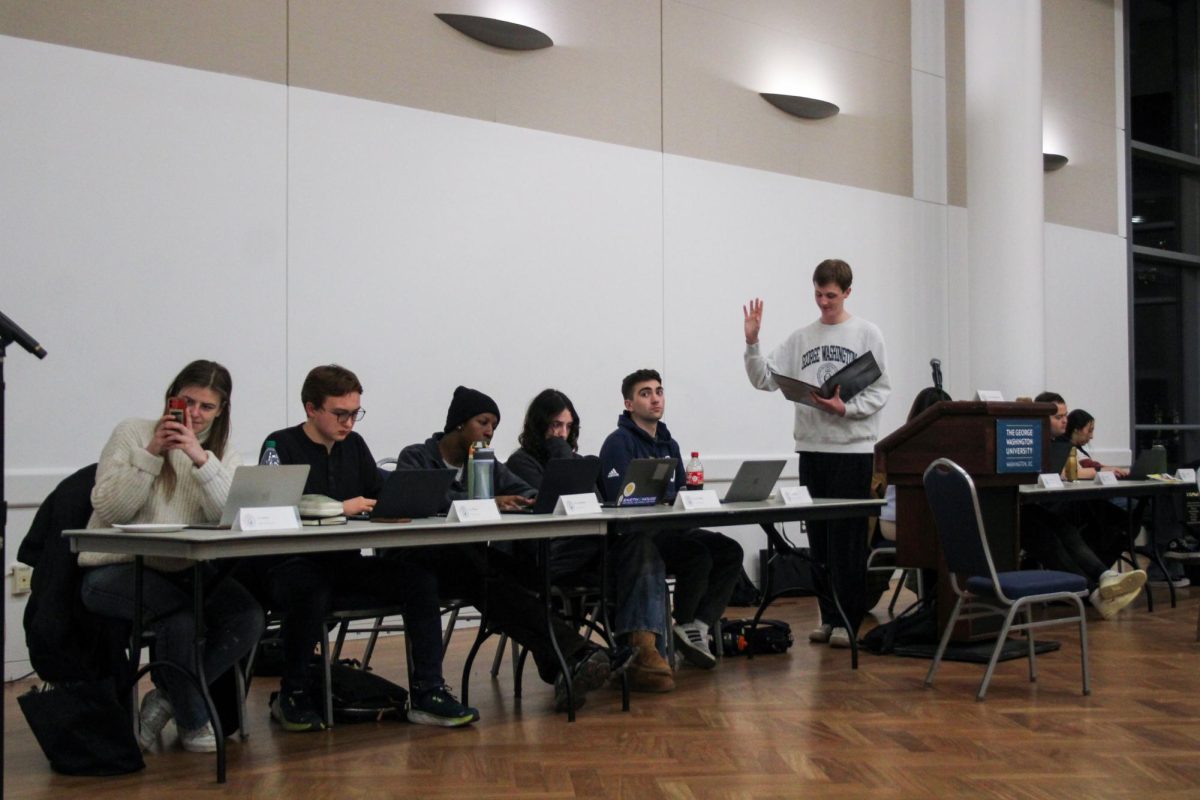Despite the high number of candidates, platforms for those running for a top spot in the Student Association include a few common threads.
Initiatives calling on officials to divest from the fossil fuel industry, restructure the financial aid office and address hateful rhetoric on campus appear in platforms for candidates running for SA president, executive vice president and senate seats. Candidates said an early February video of University President Thomas LeBlanc making a racist analogy and confirming GW’s ties to fossil fuel companies were among the driving forces behind which issues they vowed to address if elected to their respective positions.
Here’s how the topics break down among candidates’ platforms.
Divestment from fossil fuels
Seven of the eight candidates for the SA’s top two spots included plans to advocate for the University to divest from the fossil fuel industry. Sunrise GW, a student organization that lobbies for fossil fuel divestment, held multiple protests this year to educate students about the severity of the climate crisis and officials’ contributions to nonrenewable industries.
“There’s just been so much effort on the part of the students that it would kind of be a slap in the face to the student body to not be an advocate for and continue the call for the divestment of fossil fuels,” SA Sen. Brandon Hill, CCAS-U and an SA executive vice president candidate, said.
Hill said students’ outspokenness against the University’s relationship with fossil fuel companies pushed candidates to prioritize divestment this election. The SA senate unanimously passed a resolution in January, which Hill cosponsored, pushing SA members to sign a letter from Sunrise GW to LeBlanc supporting divestment.
SA Sen. Howard Brookins, U-at-Large and a presidential candidate, said Sunrise GW’s well-attended and successful rallies around divestment explain why the topic was a popular platform point. Brookins said, if elected, he would push for STEM students to research renewable energy options for University facilities to align with officials’ intention to boost STEM programs and move away from fossil fuel dependency.
“It’s just appalling that the University has still not yet reached out to Sunrise to bring them to the table to actually put forth meaningful things to move towards divestment,” Brookins said.
Andy Liaupsin, an executive vice president candidate, said student involvement in actions like petitions to support divestment and adding the referendum about the issue to the 2020 election ballot demonstrates the candidates’ dedication to the movement. He said his active participation in Sunrise GW would help him continue the call for fossil fuel divestment if elected as executive vice president.
“If we want to be a University that’s actually trying to be ready for the future and trying to work to prepare students for the world that’s ahead, we can’t be actively trying to destroy the future,” Liaupsin said.
Increase financial resources
Five presidential candidates and one executive vice president contender promised in their platforms to work toward restructuring the Office of Student Financial Assistance to increase efficiency in the aid-awarding and consulting processes.
SA Sen. George Glass, U-at-Large and a presidential candidate, said financial aid is consistently a “prominent topic” at expensive universities like GW, but this year students are especially speaking out against officials’ “inaction” on approved initiatives, like one-on-one advising in the financial aid office.
“It’s so important because if you don’t have proper resources in order to get in contact with the right people, students might not be able to come here,” Glass said.
Presidential candidates Drew Amstutz and Georgie Britcher added that the stress in navigating the financial aid office – which they’ve both dealt with – is something no student should worry about and deserves attention in candidates’ platforms.
“It’s always been something that students have widely been concerned about, but it is a topic that is often suppressed – it’s a topic that people don’t feel comfortable sharing,” Amstutz said.
Britcher said officials’ decision to axe fixed tuition last fall has “scared” many students and motivated candidates to add financial reform goals to their platforms.
“It’s not just individuals who are facing this, but this is something that affects everyone,” she said. “You know, if this doesn’t affect you directly, this will definitely affect your friend.”
Address hate on campus
Half of the candidates running for president and executive vice president included ways to handle GW’s history of bigotry and racism in their platforms.
SA presidential candidate Bishop Walton said racist and anti-Semitic instances last semester sparked conversations across various communities, like Greek and multicultural organizations. The creation of the anti-Semitic task force and forums held to address bias incidents may have also prompted candidates to address the issues in their platforms, he said.
“If we look at different ways that we could be proactive about solutions and not just put out statements but really ensure that GW is home, because when it’s home, then these incidents will not be tolerated,” he said.
Christian Zidouemba, an SA presidential candidate, said implementing a mandatory one-credit course for all students to take at least one time that discusses racial biases would help mitigate hateful acts among the student body.
“In our campus we like, oftentimes people are not kind to each other, we can uplift each other,” he said. “It’s time our University should be able to do that.”
Jared Levy, a freshman running for one of six senate seats for the Colombian College of Arts and Sciences said LeBlanc’s initiative to cut student enrollment and cancel fixed tuition starting with the Class of 2024 has motivated candidates to address the need to foster diversity at GW. The decrease in enrollment and financial changes could further discriminate against minority students and increase the school’s reputation as a “predominantly white institution,” Levy said.
“You wonder why people even think those thoughts and let alone act on them, but it’s an actual issue,” he said. “And it’s something that we’re facing all the time and have come together to act upon this year.”








